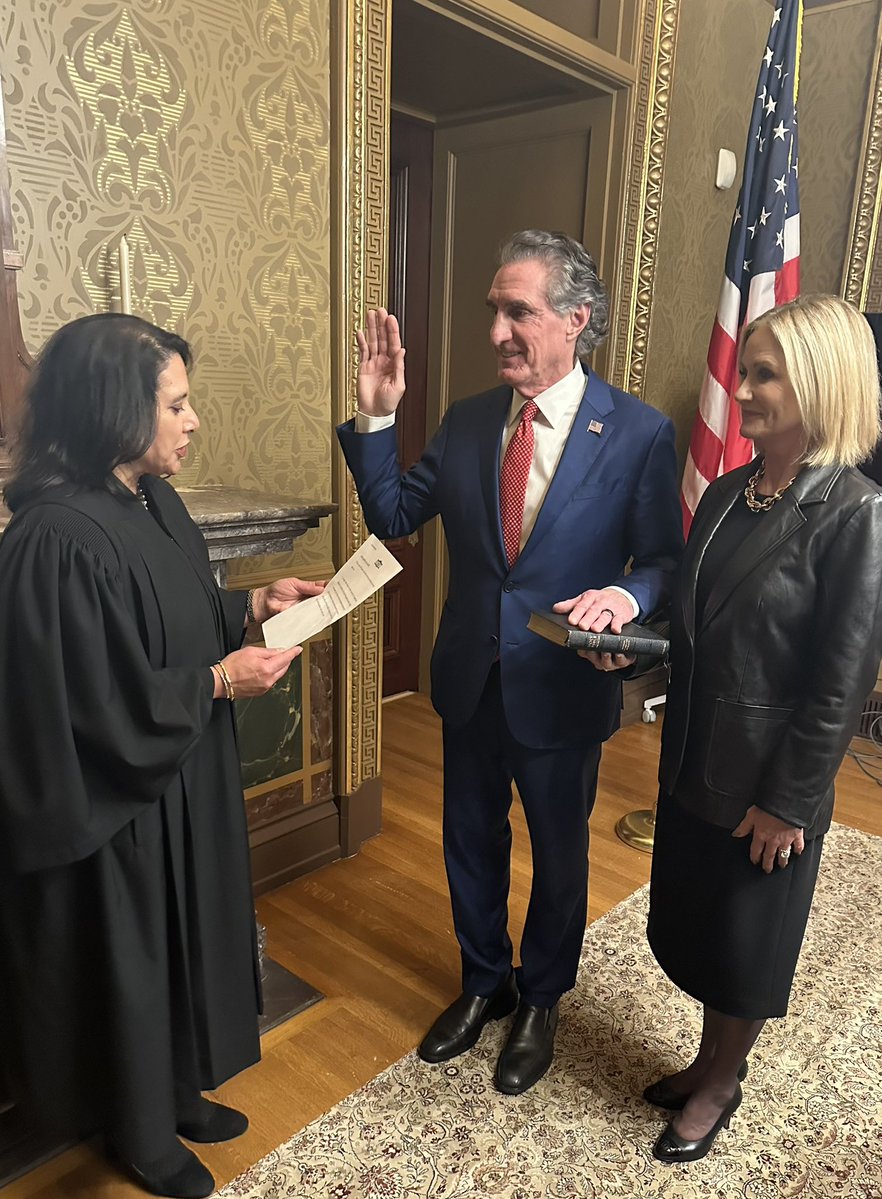
- Details
- By Neely Bardwell
Following the release of President Trump’s Fiscal Year (FY) 2026 Budget Request, a Coalition, composed of some of the biggest Native advocacy organizations across the nation, sent a second letter to Secretary of the Interior Doug Burgum urging him to oppose this request that would cut billions of dollars to Indian Country.
The budget proposal includes extreme cuts to Indian Affairs funding. Specifically, it would cut $1.2 billion from the Indian Affairs budget, including a $100 million cut to the Office of Justice Services (OJS). The letter calls these cuts unacceptable.
“We are not the cause of federal deficits, nor should federal savings be achieved to our detriment,” the letter states. “In fact, the U.S. should prioritize payment on debt to Tribal Nations as its original creditors.”
A Tribal Law and Order Act Report to Congress for FY 2021, revealed that the estimated amount of funding needed to meet the Bureau of Indian Affairs’ (BIA) obligation for public safety and justice funding to Indian Country is $3.5 billion. This is over one billion more than the entire current BIA budget.
According to testimony provided to Congress by Indian Affairs in November of 2024, the federal government is only funding 13 percent of the full funding due for public safety and justice programs. This number was measured by the Department of Interior in terms of “need.”
Chronic underfunding has already harmed Tribal communities, and further cuts to public safety would weaken already shaky public safety services and deepen disparities.
“Tribal Nations have political, government-to-government relationships with the United States, and we prepaid with our lands and resources for the federal government’s trust and treaty obligations which are carried out, in part, through a series of federal statutory mandates,” the letter states. “These actions are not discretionary; they are legal obligations rooted in treaties, trust obligations, the U.S. Constitution, and federal statutes.”
The organizations apart of this Coalition are:
- Affiliated Tribes of Northwest Indians (ATNI)
- American Indian Higher Education Consortium (AIHEC)
- California Tribal Chairpersons' Association (CTCA)
- Great Plains Tribal Chairmen's Association (GPTCA)
- Indian Gaming Association (IGA)
- Inter Tribal Association of Arizona (ITAA)
- Midwest Alliance of Sovereign Tribes (MAST)
- National American Indian Housing Council (NAIHC)
- National Center for American Indian Enterprise Development (NCAIED)
- National Congress of American Indians (NCAI)
- National Council of Urban Indian Health (NCUIH)
- National Indian Child Welfare Association (NICWA)
- National Indian Education Association (NIEA)
- National Indian Health Board (NIHB)
- National Indigenous Women's Resource Center (NIWRC)
- Northwest Portland Area Indian Health Board (NPAIHB)
- Self-Governance Communication & Education Tribal Consortium (SGCETC)
- United South & Eastern Tribes Sovereign Protection Fund (USET SPF)
- United Tribes of Michigan (UTM)
More Stories Like This
Native News Weekly (August 25, 2024): D.C. BriefsUS Presidents in Their Own Words Concerning American Indians
NDAA passes House; Lumbee Fairness Act Advances
NFL, Vikings to Host Native All-American Game, Youth Flag Clinic
Senate Committee on Indian Affairs Passes 12 Bills to Strengthen Tribal Communities
Help us defend tribal sovereignty.
At Native News Online, our mission is rooted in telling the stories that strengthen sovereignty and uplift Indigenous voices — not just at year’s end, but every single day.
Because of your generosity last year, we were able to keep our reporters on the ground in tribal communities, at national gatherings and in the halls of Congress — covering the issues that matter most to Indian Country: sovereignty, culture, education, health and economic opportunity.
That support sustained us through a tough year in 2025. Now, as we look to the year ahead, we need your help right now to ensure warrior journalism remains strong — reporting that defends tribal sovereignty, amplifies Native truth, and holds power accountable.
 The stakes couldn't be higher. Your support keeps Native voices heard, Native stories told and Native sovereignty defended.
The stakes couldn't be higher. Your support keeps Native voices heard, Native stories told and Native sovereignty defended.
Stand with Warrior Journalism today.
Levi Rickert (Potawatomi), Editor & Publisher


